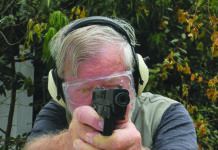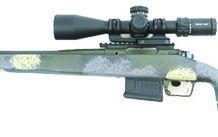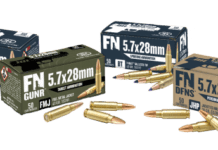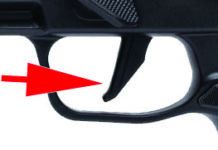
The 3rd Circuit Court of Appeals has issued a decision that upholds the exclusion of certain firearms from the protection of the 2nd Amendment. In 2014, Pennsylvania resident Ryan Watson filled out an application on behalf of a trust to make and register an M-16/style machine gun with the ATF. Despite a federal law prohibiting any individual from manufacturing or possessing a machine gun after 1986, the ATF inadvertently approved his application. Afterward, Watson had his machine gun manufactured. A month after that, he received a call from the ATF saying that his application had been “disapproved.”
Watson sued the ATF, claiming that the ATF had violated his 2nd Amendment rights. He argued that the federal law prohibiting the possession of a machine gun is unconstitutional under the 2nd Amendment, both by itself and as applied to him specifically, and that even if the law is constitutional, it doesn’t apply to a trust because a trust isn’t a person.
How did the court rule? That the law is constitutional because the 2nd Amendment does not protect the possession of machine guns. The court also ruled that trustees (and their trusts) are not exempt from this law.
In its decision, the 3rd Circuit court relied heavily on Heller, in which the Supreme Court ruled that the 2nd Amendment extends only to certain kinds of weapons such as those “in common use.” This is a concept that started in United States v. Miller, which was the first case to challenge the constitutionality of the NFA. The 3rd Circuit, Heller Court, and Miller Court all held that the 2nd Amendment excludes machine guns because “those weapons [are] not typically possessed by law-abiding citizens for lawful purposes.” The 3rd Circuit isn’t alone in this approach. The 6th Circuit, 7th Circuit, 8th Circuit, and D.C. Circuit have all come to similar conclusions.
Also, many folks who own or want to own National Firearms Act devices thought that executing their purchases through a trust might keep some provisions of the law from applying to them.
A trust can’t take legal action on its own, so a trustee must take legal action on behalf of the trust. The court held that because a trustee must always take action on behalf of a trust, the same rules that apply to persons apply to trusts.
The Court said that this rule is consistent with the intent of the law. If you didn’t count a trustee acting through a trust as a “person,” then people traditionally prohibited from possessing firearms (like convicted felons) could set up trusts and possess all the firearms they wanted.
I know — many of us are seeing red about this decision because it has been widely said in the gun-owning community that the 2nd Amendment exists to protect ownership of exactly these kinds of guns. If you’re not current on the writings of Franz Kafka, now would be a good time to brush up on what “Kafkaesque” means.

























